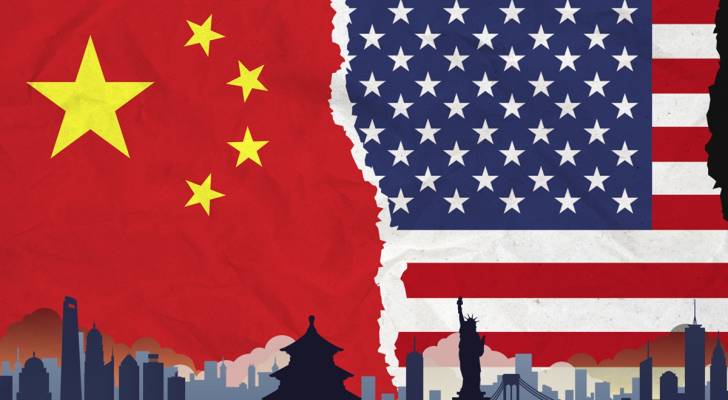(Photo: Getty Images)
US, China begin high-stakes trade talks in Geneva
Senior US and Chinese officials commenced trade negotiations in Geneva on Saturday, May 10, 2025, marking the first high-level dialogue aimed at de-escalating a bruising trade war that has disrupted global supply chains and rattled financial markets.
The talks, led by US Treasury Secretary Scott Bessent and US Trade Representative Jamieson Greer on the American side, and Chinese Vice Premier He Lifeng for Beijing, represent a tentative step toward resolving tensions fueled by unprecedented tariffs.
The trade war, reignited by US President Donald Trump’s imposition of 145 percent tariffs on most Chinese imports in early April, has seen China retaliate with 125 percent duties on US goods, effectively halting much of the USD 660 billion annual trade between the world’s two largest economies.
The resulting economic fallout—disrupted supply chains, rising consumer prices, and fears of a global recession—has pushed both nations to the negotiating table, though expectations for a major breakthrough remain low.
The Geneva meeting, brokered in part by Switzerland, follows months of economic brinkmanship and public posturing. Both sides have traded barbs over who initiated the talks, with China claiming the US requested the meeting and Trump insisting Beijing made the first move.
Chinese Foreign Ministry spokesperson Lin Jian emphasized that any dialogue must be based on “equality, respect, and mutual benefit,” while warning that “pressure or coercion against China will not work.” On Friday, Trump hinted at a potential reduction to 80 percent tariffs but left the decision to Bessent, signaling flexibility but no firm commitment.
Bessent, speaking earlier in the week, described the talks as focused on “de-escalation” rather than a comprehensive trade deal, acknowledging that the current tariffs are “the equivalent of an embargo.”
The economic stakes are immense. In the US, businesses from toymakers to farmers are reeling from higher costs and canceled orders, with Hasbro reporting a USD 300 million hit from tariffs.
The Port of Los Angeles has seen a 20 percent drop in expected ship arrivals, and a 60 percent decline in cargo ships from China threatens shortages and price hikes. In China, the export-dependent economy faces mounting pressure from a property slump and declining factory output, prompting the People’s Bank of China to cut interest rates and ease lending restrictions to bolster liquidity.
Investment bank Nomura has warned that the trade war could cost China up to 16 million jobs.
Beyond tariffs, the talks may touch on contentious issues like US demands for China to curb fentanyl precursor exports and accusations of Beijing’s “mercantilist” economic practices.
The presence of Xi Jinping’s top security aide, Wang Xiaohong, in the Chinese delegation underscores the significance of fentanyl in the discussions. However, Chinese officials have signaled that these issues will not dominate the weekend’s agenda.
Global markets have responded cautiously but optimistically, with US equity futures and Chinese stocks rising after the talks were announced.
As the delegations meet in a secretive location in Geneva, guarded by police and shielded from public view, the world watches for any sign of progress. While a modest pullback from sky-high tariffs could ease immediate economic strain, the road to normalized trade remains fraught with political and economic challenges. “This is the end of rhetoric and the beginning of reality,” said Jeff Moon, a former US trade negotiator. “We really need trade to flow.”




